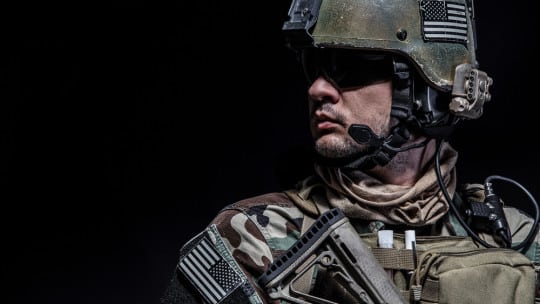

There were too many examples last month of organizations screwing up. We could have piled on PwC for the Oscars, but given that Hollywood obsessed about it for weeks, it was hard to find much more to say. And of course, we would have loved to weigh in on the great leggings-on-United kerfuffle clinging to Twitter as, well, leggings do. But frankly, in these times, all that seemed trivial compared to a couple of serious crises plaguing America’s military.
U.S. Marines Corps vs. U.S. Navy
No, we’re not talking about a football game (in fact, Marines can play on Navy’s team, but that’s not the point). We’re talking about two crises with enormous ramifications that have engulfed the armed forces in the last month.
First there was news that a private social media group known as Marines United had shared sexually explicit photos of female Marines. Then came news that a notorious bribery and kickback scandal, known as “Fat Leonard,” led to indictments of eight Navy officers, including an admiral.
Both stories had all the ingredients of a garden-variety, salacious scandal: sex, women and lewd behavior. How could the press possibly resist? Of course, it didn’t.
The intensity of the coverage of the Marines United debacle quickly led to congressional hearings and an investigation of armed forces’ social media policies. The indictment of Navy officers provided enough juicy tidbits to keep media fires burning for weeks. What is intriguing is the starkly contrasting ways the services handled the scandals.
Marines
First, in the interest of full disclosure, when the Marines United scandal was unfolding I was at the International Public Relations Research Conference, hanging with Marines who are part of the famed San Diego State University master’s program for military public affairs officers (PAO). Any CCO in the Fortune 50would kill to have the PAOs this rigorous program turns out on his or her staff.
So, of course, I had to ask them what they thought. As far as I know they had not rehearsed their answers, but their messages were consistent and clear: They were furious. It was personally offensive and totally out of line with the service’s ethics. It was also worth noting that the men were even angrier and more appalled than the women. A former Marine turned investigative reporter who runs a website known as The War Horse broke the story. Reveal, a multi-media outfit specializing in investigative reporting, gave it legs.
The official media response from Marine leadership sounded remarkably like that of the students I met at the conference. Maybe the students received talking points, but I doubt it. These Marines weren’t spouting talking points, they were articulating corporate culture.
Those initial talking points were followed up by an amazing display of transparency in which the full internal Marine memo on the crisis, complete with all the talking points, policies and detail you could ever want, showed up on The War Horse, the same outlet that broke the initial story. Although the scandal brought out the dark underbelly of sexism in the services, military men and women bolstered it further by weighing in to say that this incident should not be surprising. It was still textbook-perfect crisis management.

Navy
To be fair to the Navy, the Fat Leonard scandal is not recent news. The original investigation into Leonard Francis, aka Fat Leonard, began years ago, when news broke about the supersized (in all senses of the word) contractor who used sex, booze and other perks to divert contracts to his company and then bilk U.S. taxpayers for millions. Last month’s indictments simply were the result of an ongoing investigation.
The lesson for PR people, however, was in the resulting coverage of the scandals. Most of the Marines United coverage included Marine spokespeople and leadership expressing horror, dismay and anger at the revelations. As expected, outrage from members of Congress and pledges to get to the root of the problem followed.
On the other hand, coverage of the Navy scandal focused mostly on juicy details about the size and extent of the parties and Fat Leonard’’s largesse. There was no mention of pledges to address the underlying issue, or any attempt to rectify the Navy’s damaged image with taxpayers. In fact, Navy leadership was totally absent from the coverage. Its response was, “We can’t comment about an ongoing investigation.” Fine. We’ve seen the TV show. NCIS doesn’t want you to talk about active investigations, which is why you should brief influencers, retired officers or whatever credible sources you can find about key messages and details of what you are doing to make sure such shenanigans won’t occur again.
Ultimately, it came down to a stark contrast between transparency and authenticity and standard crisis legalese. The Marines were overt, sharing policies and all the details the service could muster. The Navy said nothing.

CONTACT: [email protected]
